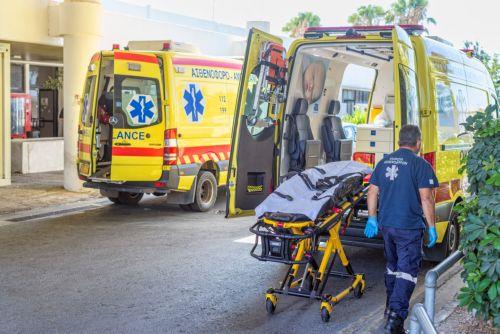Parents of children with severe autism in Cyprus are being left without vital support due to serious gaps in the national health scheme, according to an urgent complaint submitted to the health ministry.
The Cyprus confederation of organisations of the disabled (Kysoa) has sounded the alarm over the exclusion of such cases from in-hospital treatment covered by the national health scheme (Gesy).
The concern stems from a recent case involving a teenager with an acute form of autism, whose condition rapidly deteriorated. Despite the need for immediate in-hospital care, authorities failed to provide the necessary support. Kysoa officially raised the issue with the state health services organisation (Okypy) and the minister of health on March 18.
However, instead of offering solutions, Okypy responded on April 11 by accusing the media of spreading “inaccurate, delayed and distorted information” about the operation of the adolescent inpatient department (Tene). Their statement sparked further outrage among parents and advocacy groups.
According to Okypy’s own website, the Tene unit only admits adolescents aged 12 to 17 with serious psychiatric or psychosocial disorders. Children on the autism spectrum, regardless of the severity of their condition, are not covered, effectively barring them from receiving hospital care under Gesy.
There is no protocol for transferring these children to hospital by ambulance in emergencies. In practice, the police are called instead, a move seen as discriminatory and distressing for both the children and their families.
“This is not just a gap in the system, it’s a glaring injustice,” Kysoa said in a statement.
“No child should be excluded from care. And yet, children with autism are left out entirely from the national plan.”
The confederation has called on all stakeholders to act responsibly and urgently review protocols. Under the United Nations convention on the rights of the child (article 23) and the Convention on the rights of persons with disabilities (article 25), both ratified by Cyprus, children with disabilities have the right to equal access to healthcare.
“Progress is being made in some areas,” Kysoa acknowledged, “but when even one child is left behind, the system is failing.”
The group also criticised the recent drafting of the national mental health strategy, claiming that it was completed without involving disability organisations, a clear breach of consultation laws under the 2006 disability consultation procedures act.
Despite these setbacks, the confederation welcomed the initial response of the health minister and senior ministry officials, who intervened to address the urgent case. But they stressed that one intervention is not enough.
“We must move beyond patchwork fixes,” the statement said.
“This is about safeguarding every child’s right to health and dignity. The current protocols are outdated and unfit for a modern European nation.”
Kysoa is urging the full modernisation of healthcare services for children with autism, including guaranteed in-hospital care under Gesy, proper emergency response mechanisms, and clear guidance for families.
“The goal,” the group concluded, “is not only to help one child, but to protect them all.”






Click here to change your cookie preferences